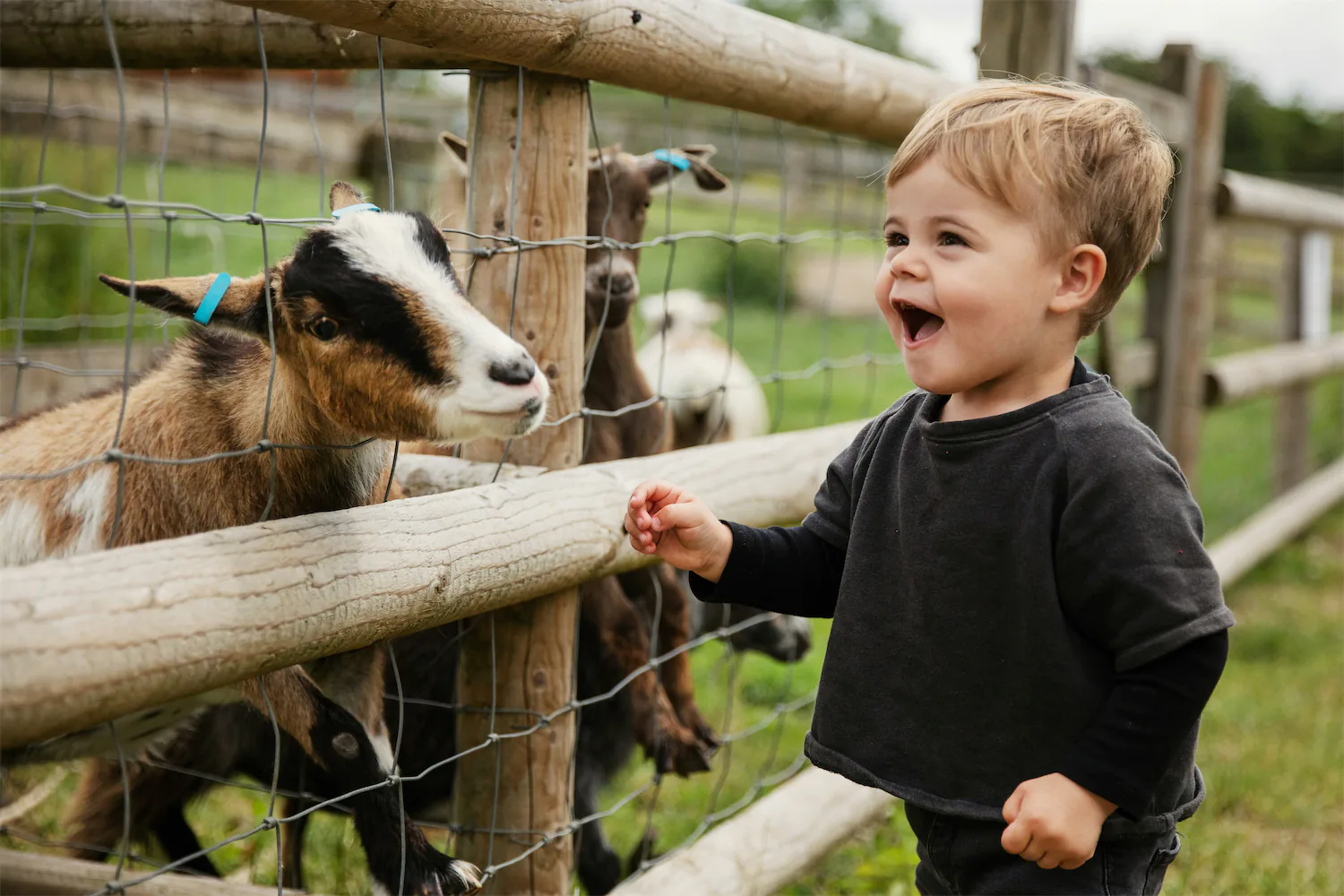Cognitive development activities for preschoolers
Cognitive development activities for preschoolers
Cognitive activities to improve cognitive skills in preschoolers
Cognitive activities to improve cognitive skills in preschoolers

Dahlia Rimmon, RDN
Content Writer

Jennifer Gillette, MA
Child Development & Behavior Specialist



Preschoolers are naturally curious about the world around them. Developing cognitive skills is important for fostering problem-solving and encouraging curiosity and exploration.
Why is cognitive development important for children?
Cognitive development encourages children to understand their surroundings, solve problems, strengthen their memory, and expand their language skills. It serves as the foundation for academic success, social interactions, and critical thinking. Supporting cognitive growth from an early age sets children up for lifelong learning and achievement.
Cognitive development milestones for children in preschool
Problem solving skills: Can solve simple puzzles, use trial and error to complete tasks, and understand simple sequences like first, next, and last.
Vocabulary: Their vocabulary expands to over 1,000 words and they begin forming complex sentences. They frequently ask "why" and "how" questions to better understand their environment.
Memory: Preschoolers can remember and retell short stories, recognize familiar places and people, and follow routines, schedules, and multi-step instructions.
Cause and effect: They can predict what happens next in a story, understand that actions have consequences (“If I tip my cup, the water will spill.”), explore how things work through hands-on experimentation, and test boundaries with caregivers and parents.
Imitation: Preschoolers mimic parents, siblings, and others around them, helping them learn social and behavioral norms.
Activities to promote cognitive development in preschoolers
Here are some activities to improve cognitive ability:
Reading: Make it a habit to read books everyday to improve literacy and vocabulary. Ask open-ended questions about the book to foster their comprehension skills.
Storytelling: Encourages children to make up their own stories to encourage creativity and language development.
Sorting games or chores: Sorting objects by color, size, or shape, such as buttons, toys, or socks, enhances classification skills.
Memory games: Playing memory-matching card games strengthens recall and concentration.
Puzzles: Solving simple jigsaw puzzles encourages problem-solving and spatial reasoning.
Building blocks: Wooden or magnetic locks or LEGO promotes creativity and an understanding of balance and design.
Cooking: Measuring, mixing, and predicting what will happen in cooking teaches sequencing, cause-and-effect thinking, and improves fine motor skills.
Scavenger hunts: Encourages problem-solving and observational skills.
Pretend play: Imaginative play fosters creativity, language skills, social understanding, and autonomy.
Movement games: Games like freeze dance or ‘Simon Says’ helps children practice following directions and coordination.
Outdoor exploration: Encouraging kids to explore nature through activities like nature walks, insect observation, and leaf collecting promotes curiosity, scientific thinking, and a deeper appreciation for the natural world.
If you have questions about your child’s cognitive abilities or development, reach out to your local or Summer Health pediatrician for support. Summer Health is a pediatric telehealth platform offering 24/7 care, providing answers for everything from urgent concerns to everyday questions about your child’s health.
Preschoolers are naturally curious about the world around them. Developing cognitive skills is important for fostering problem-solving and encouraging curiosity and exploration.
Why is cognitive development important for children?
Cognitive development encourages children to understand their surroundings, solve problems, strengthen their memory, and expand their language skills. It serves as the foundation for academic success, social interactions, and critical thinking. Supporting cognitive growth from an early age sets children up for lifelong learning and achievement.
Cognitive development milestones for children in preschool
Problem solving skills: Can solve simple puzzles, use trial and error to complete tasks, and understand simple sequences like first, next, and last.
Vocabulary: Their vocabulary expands to over 1,000 words and they begin forming complex sentences. They frequently ask "why" and "how" questions to better understand their environment.
Memory: Preschoolers can remember and retell short stories, recognize familiar places and people, and follow routines, schedules, and multi-step instructions.
Cause and effect: They can predict what happens next in a story, understand that actions have consequences (“If I tip my cup, the water will spill.”), explore how things work through hands-on experimentation, and test boundaries with caregivers and parents.
Imitation: Preschoolers mimic parents, siblings, and others around them, helping them learn social and behavioral norms.
Activities to promote cognitive development in preschoolers
Here are some activities to improve cognitive ability:
Reading: Make it a habit to read books everyday to improve literacy and vocabulary. Ask open-ended questions about the book to foster their comprehension skills.
Storytelling: Encourages children to make up their own stories to encourage creativity and language development.
Sorting games or chores: Sorting objects by color, size, or shape, such as buttons, toys, or socks, enhances classification skills.
Memory games: Playing memory-matching card games strengthens recall and concentration.
Puzzles: Solving simple jigsaw puzzles encourages problem-solving and spatial reasoning.
Building blocks: Wooden or magnetic locks or LEGO promotes creativity and an understanding of balance and design.
Cooking: Measuring, mixing, and predicting what will happen in cooking teaches sequencing, cause-and-effect thinking, and improves fine motor skills.
Scavenger hunts: Encourages problem-solving and observational skills.
Pretend play: Imaginative play fosters creativity, language skills, social understanding, and autonomy.
Movement games: Games like freeze dance or ‘Simon Says’ helps children practice following directions and coordination.
Outdoor exploration: Encouraging kids to explore nature through activities like nature walks, insect observation, and leaf collecting promotes curiosity, scientific thinking, and a deeper appreciation for the natural world.
If you have questions about your child’s cognitive abilities or development, reach out to your local or Summer Health pediatrician for support. Summer Health is a pediatric telehealth platform offering 24/7 care, providing answers for everything from urgent concerns to everyday questions about your child’s health.
Summer Health offers fast and reliable pediatric urgent care through online doctors, all via text. Whether you’re worried about your baby's fever, rashes, or other children's health concerns, we provide expert advice and support anytime, right from your phone.

Never miss a post!
Sign up for our newsletter to receive articles and guides directly to your inbox!












